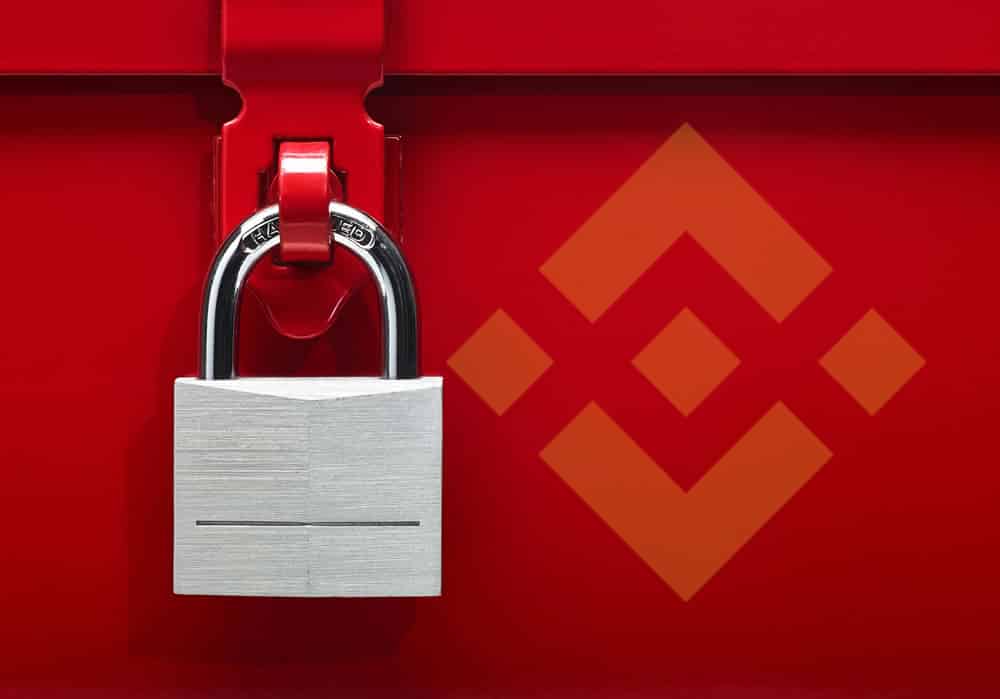OpEd: Binance and OKEx Control Your Crypto Assets, Not You

It has become painfully obvious for thousands of cryptocurrency traders today that centralized exchanges control their assets and can shut off access at their whim.
A couple of hours ago one of the largest crypto asset exchanges in the world suspended withdrawals rendering thousands of people with no access to their funds.
OKEx Goes Dark
Markets reacted badly with Bitcoin plunging 2.5% in a matter of minutes back to $11,230. OKEx’s native token OKB suffered even greater losses with a 15% dump in less than half an hour.
Chinese blockchain media 8btc founder, Red Li, responded with an update stating that the platform has not been affected by anything untoward;
“CEO of #okex just pinned a weibo, saying that it’s only the “personal problem” of privatekey-holder and the operation of the platform is not affected.”
By then the damage had been done and for those unaware, it is clear that the exchange controls the coin, not the customers.
OKEx is not alone with this practice as Binance also has the power to turn off the tap when it feels the need.
Binance Jersey Disabling User Accounts
Binance’s Jersey exchange has also been disabling user accounts recently as it appears to have come under increasing pressure from U.K. regulators demanding more financial information from its users.
Over the past two weeks, the exchange has been dispatching spurious appearing emails to its clients with a Google Docs link demanding financial and personal information regarding the source of funds. It threatened account closure if no action was taken.
This is a highly irregular practice in an industry that is rife with scams and email phishing attempts. There were no notifications or warnings within the account dashboard itself.
Additionally, the email address it used – compliance@binance.je – did not appear to be genuine when checked against the company’s own verification and anti-fraud system.
It is unknown how many tech-savvy clients did not click the link in the email, but two weeks after they were sent out Binance started locking customer accounts. To their credit, support responded promptly and this user’s account at least was restored within a few hours following the completion of the somewhat intrusive ‘source of wealth’ questionnaire which also demanded the upload of evidence providing sources of funding.
For those that get paid in crypto into the account that Binance had just locked, this was a very frustrating experience as the ‘evidence’ they demanded was in the disabled account.
Not Your Coins …
Binance is behaving more like a bank and has clearly proved that it can pull the plug on its customers’ accounts and freeze their finances whenever it sees fit.
Industry observers have pointed out that incidents like these demonstrate that centralized exchanges cannot be trusted;
“Stop using centralized exchanges as your bank account, you are not in control of your funds. Secure your own keys with a hardware wallet, and become your own bank with DeFi”
This old adage has never been more appropriate; “not your keys, not your coins”.
Recent Posts
- Crypto News
Lighter Team Under Fire After Alleged $7.18M LIT Token Dump Post-Airdrop
New data indicates that wallets associated with Lighter might have traded millions of dollars in…
- Crypto News
Binance Market Maker Hack: Trader Rakes in $1M via Failed BROCCOLI Price Manipulation
A covert New Year crypto hack on Binance has made headlines, with a trader raking…
- Crypto News
Breaking: UK Begins New Initiative to Crack Down on Crypto Tax Evasion
The UK has now implemented measures to control the undeclared income from crypto assets. The…
- Crypto News
Mark Cuban and Dallas Mavericks Clear Hurdle as Judge Dismisses Crypto Lawsuit
Adding to the growing list of high-profile crypto lawsuits settled in the US in 2025,…
- Crypto News
Bitcoin Treasury News: Tether Boosts Holdings by 8,888 BTC Despite Market Volatility
USDT issuer Tether has expanded its Bitcoin treasury once again with major purchases in Q4…
- Crypto News
Trump Tariffs: Crypto Traders Increase Bets On Supreme Court Ruling as Cooling Inflation Fuels Rate Cut Hopes
Cryptocurrency traders are increasing their wager that the Supreme Court would approve Trump's tariff authority.…